By P.W. Singer and August Cole
Ghost Fleet is a page-turning speculative thriller in the spirit of The Hunt for Red October. The debut novel by two leading experts on the cutting edge of national security, it is unique in that every trend and technology featured in the novel — no matter how sci-fi it may seem — is real, or could be soon.
Naval Intelligence Professionals Bookshelf
A Recommended Reading List
Led by RADM Tom Brooks (Ret.) and ISCM Dave Mattingly (Ret.), NIP has constructed a list of books (fiction and non-fiction) which are considered to be “classics” in each of the intelligence disciplines.
The beginnings of this list are included below. The object is to list two or three of the best books in each discipline, and we anticipate that the list will undoubtedly change over time as the readership suggests books that they consider better than the ones on the current list.

SUBJECTS
- *MUST READ* (6)
- China (9)
- Counterintelligence (4)
- Cyber & Information Warfare (3)
- Fiction (5)
- Human Intelligence (HUMINT) (2)
- Intelligence Analysis/Indications and Warning (5)
- Intelligence and National Decision-making (5)
- Leadership (11)
- Naval Intelligence History (General) (9)
- Naval War College Digital Commons (3)
- Other Reading Lists/Key Resources (11)
- Special Operations / Counter Terrorism (3)
- WWI/WWII/Cold War (12)
*MUST READ* China Counterintelligence Cyber & Information Warfare Fiction Human Intelligence (HUMINT) Intelligence Analysis/Indications and Warning Intelligence and National Decision-making Leadership Naval Intelligence History (General) Naval War College Digital Commons Other Reading Lists/Key Resources Special Operations / Counter Terrorism WWI/WWII/Cold War
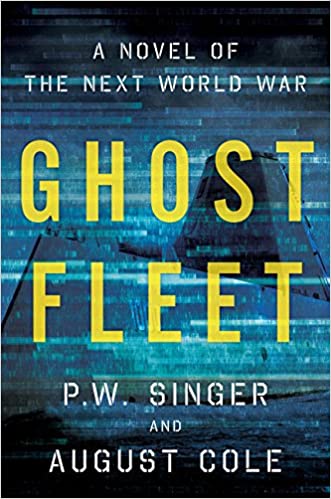
Ghost Fleet
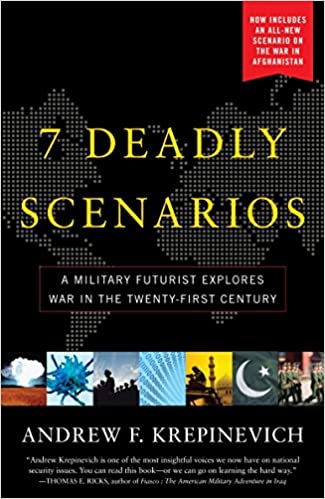
7 Deadly Scenarios
By Andrew F. Krepinevich
A global pandemic finds millions swarming across the U.S. border. Major American cities are leveled by black-market nukes. China’s growing civil unrest ignites a global showdown. Pakistan’s collapse leads to a hunt for its nuclear weapons. What if the worst that could happen actually happens? How will we respond? Are we prepared?
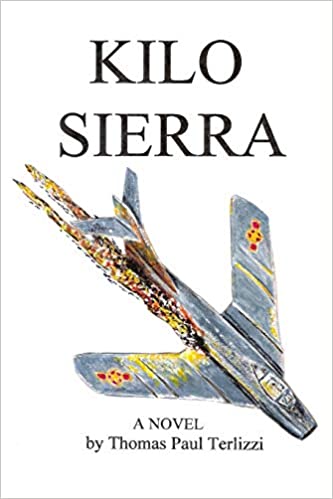
Kilo Sierra
By Tom Terlizzi
Kilo Sierra is a sea story, a Navy story, and a love story set against the background of American and Asian culture in 1972. Kilo Sierra blends Vietnam combat action, antics of sailors on liberty, the hand of fate, and the power of love and friendships. Kilo Sierra takes the reader to the mountains of Colorado, jungles of Southeast Asia, and the city streets of the Philippines, Japan, and Hong Kong.
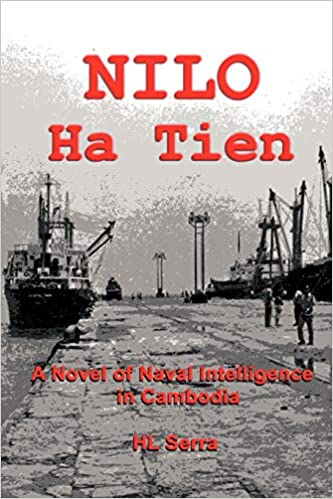
NILO Ha Tien
By HL Serra
Historical Fiction, U.S. Navy, Vietnam War In the early months of 1970, LT Thomas Medici, NILO Ha Tien, enters Cambodia on U.S. Naval Intelligence missions and negotiates a secret weapons agreement with the Cambodian Navy, then thwarts the destruction of of the Port of Sihanoukville- for which he is tried at a Naval Board of Inquiry.

Hunt for Red October
By Tom Clancy
The #1 New York Times bestseller that launched the phenomenal career of Tom Clancy—the gripping military thriller that introduced the world to his unforgettable hero, Jack Ryan.
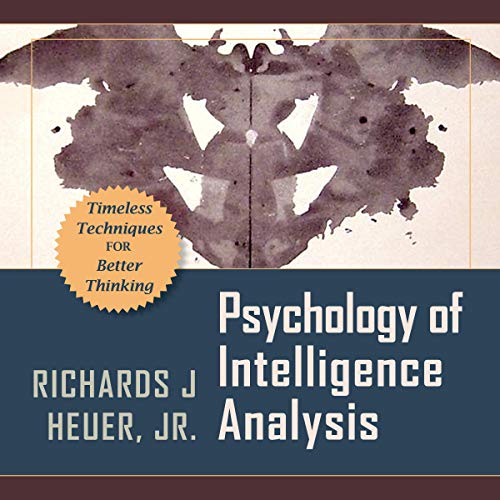
Psychology of Intelligence Analysis
By Richards D. Heuer, Jr
Written by a veteran CIA senior analyst this is another must read book for the Intelligence professional. Since analysis is at the heart of the Intelligence profession, understanding the human biases how we manage the information in our heads is crucial to understanding our own assessment and our customers mindset. Heuer’s message is that we have to study the primary analytic mechanism—the human mind—and the way it processes information in order to improve our ability to generate better intelligence estimates.
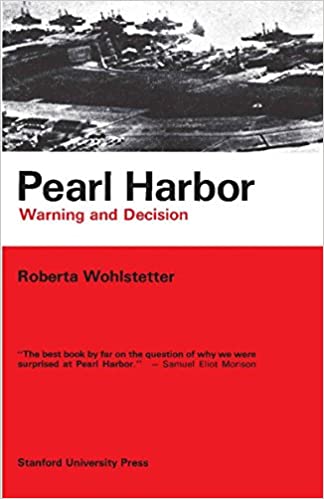
Pearl Harbor Warning and Decision
By Roberta Wohlstetter
For decades the controversy has raged: Was the Pearl Harbor disaster a result of criminal negligence by military officers in the Pacific theater? Was it, as some have claimed, a deliberate plot by the President in Washington?
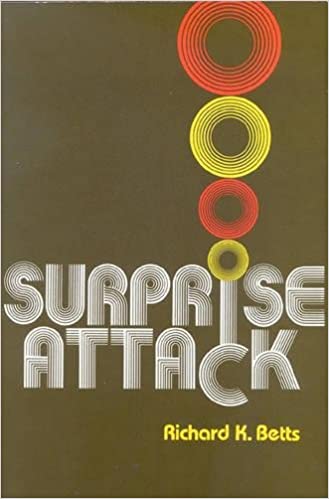
Surprise Attack
By Richard K. Betts
Long before Germany's blitzkrieg swept the West, European leaders had received many signals of its imminence. Stalin, too, had abundant warning of German designs on Russia but believed that by avoiding "provocative" defensive measures he could avert the attack that finally came in June 1941. And the stories of the Japanese attack on Pearl Harbor, the Korean War, and three Arab-Israeli conflicts are replete with missed opportunities to react to unmistakable warnings. Richad K. Betts analyzes surprise attacks during the mid-twentieth century to illustrate his thesis: surprise attacks occur, not because intelligence services fail to warn, but because of the disbelief of political leaders.
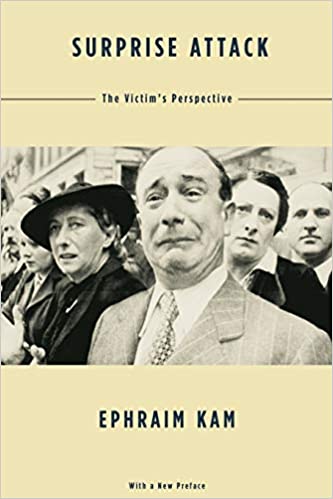
Surprise Attack, The Victim's Perspective
By Ephraim Kam
Ephraim Kam observes surprise attack through the eyes of its victim in order to understand the causes of the victim’s failure to anticipate the coming of war. Emphasizing the psychological aspect of warfare, Kam traces the behavior of the victim at various functional levels and from several points of view in order to examine the difficulties and mistakes that permit a nation to be taken by surprise. He argues that anticipation and prediction of a coming war are more complicated than any other issue of strategic estimation, involving such interdependent factors as analytical contradictions, judgmental biases, organizational obstacles, and political as well as military constraints.
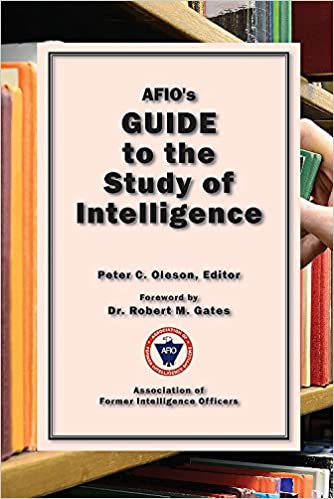
Guide to the Study of Intelligence
By Peter C. Oleson
Perfect for professors, students, those considering careers in intelligence, and current/former officers seeking to see what changes are taking place across a wide spectrum of intelligence disciplines.
